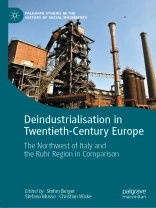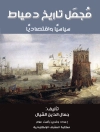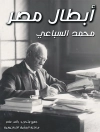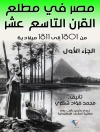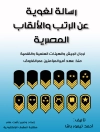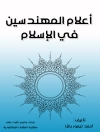Exploring two large economies which were heavily affected by deindustrialisation in the late twentieth century, this book provides insights into the social movements that brought about and also challenged industrial reduction in Europe. Both the Ruhr region in Germany and the Northwest of Italy experienced major structural transformation from the 1960s as a result of deindustrialisation. With contributions from experts in the field, this collection provides a comparative overview of each region, examining policy implementation, class relations, the changing political economy and environmental impact. Analysing industrial and post-industrial landscapes, urban developments and labour relations, the authors place their transnational findings within the context of the wider literature on deindustrialisation in the global North. A much-needed contribution to deindustrialisation studies, which have traditionally focused on North America and the UK, this book is a useful read for those researching deindustrialisation and the social history of Europe.
สารบัญ
1. The Unmaking of Industrial Landscapes: The North-Western Italian Industrial Triangle and the Ruhr Region in Germany; Stefan Berger, Stefano Musso and Christian Wicke.- Part I. Introducing Industrial Lanscapes.- 2. The Industrial Landscape of the Ruhr: Structure and Perspectives; Hans-Werner Wehling.- 3. The North-West of Italy; Stefano Musso.- Part II. Living Deindustrialisation.- 4. The People’s Memories: Oral History of Industry in the Deindustrialisation of the Ruhr; Stefan Moitra.- 5. ‘The Master Director of All This is Time’: An Oral History Project in Sesto San Giovanni; Roberta Garruccio.- Part III. Managing Economic Decline.- 6. Which Endogenous Potential and Which Exogenous Aids Promote the Management of Structural Change in the Region? Experiences from the Ruhr Area; Stefan Goch.- 7. The Deindustrialisation of Genoa: Resistance and the Search for a New Identity; Marco Doria.- Part IV. Labour Relations under Conditions of Deindustrialisation.- 8. Economic Globalisation and Political Regulation: The Role of Labour Relations in the Process of Economic Restructuring in the Ruhr Area; Manfred Wannöffel.- 9. The Role of Labour Relations in the Process of Deindustrialisation in Italy’s Northwest; Gilda Zazzara.- Part V. Urban Development under Conditions of Deindustrialisation.- 10. Urban Development under Conditions of Deindustrialisation: Approaches from the Ruhr Region in Germany; Christa Reicher.- 11. Milan: The Story of an Urban Metamorphosis; Giorgio Bigatti.- 12. Deindustrialisation in Turin and the Role of the Local Government for Economic and Urban Change; Sergio Scamuzzi.- Part VI. Environmental Development under Conditions of Deindustrialisation.- 13. Layers of New Green: Postindustrial Landscapes and Identity Formation in the Ruhr Valley; Pia Eiringhaus.- 14. Πάντα ῥεῖ (Panta Rhei, Everything Flows): The Greening Industry’s Rivers and the Making of New Landscapes in Turin; Egidio Dansero, Giacomo Pettenati, Simone Mangili, and Piero Bonavero.- Part VII. Cultures of Deindustrialisation.- 15. Re-using Industrial Sites in the Ruhr: Agendas and Developments; Stefan Berger.- 16. Re-using Former Industrial Areas in the Northwest of Italy; Anna Moro.- Part VIII. Conclusions.- 17. Conclusion; Martin Baumeister and Steven High.
เกี่ยวกับผู้แต่ง
Stefan Berger is Professor of Social History and Director of the Institute for Social Movements at Ruhr University Bochum, Germany. He is executive chair at the Foundation History of the Ruhr and an Honorary Professor at Cardiff University in the UK. He co-edits, with Holger Nehring, Palgrave Studies in the History of Social Movements, and has published widely on comparative labour history, deindustrialisation studies, industrial heritage, historiography and nationalism.
Stefano Musso is Associate Professor in the Department of Historical Studies at the University of Turin, Italy. He was general manager of the Institute for the Memory and Culture of Labour, Business, and Social Rights in Turin and President of the Italian Society for the History of Labour. He is a member of the editorial board of several Italian historical journals. Among his many publications on labour and business history is Storia del Lavoro in Italia (2015).
Christian Wicke is Assistant Professor in Political History at Utrecht University, the Netherlands. He has worked in nationalism studies, deindustrialisation studies, and social movement studies and is particularly interested in the politics of history, memory and heritage, currently focussing on urban movements in the 1970s. With Stefan Berger and Sean Scalmer he recently edited Remembering Social Movements: Activism and Memory (2021).
